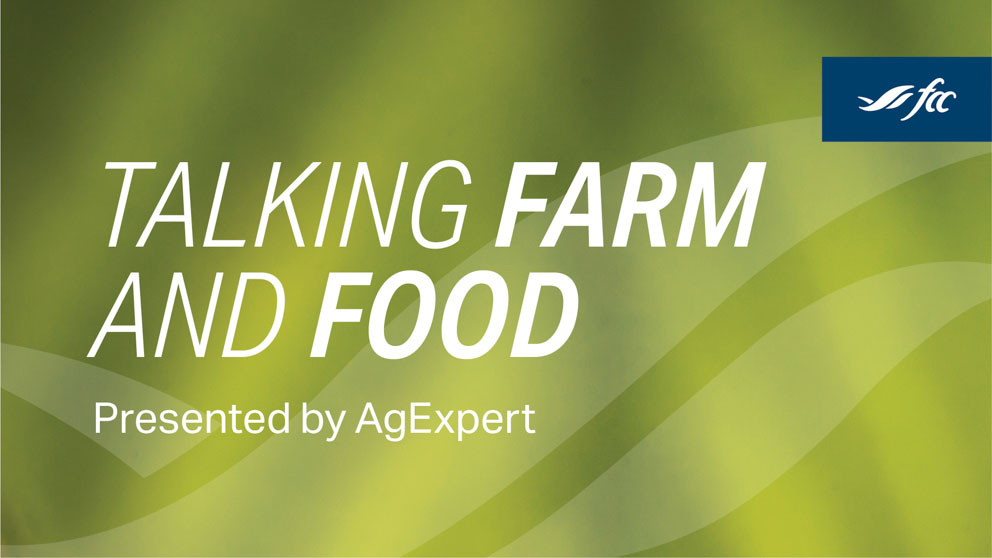Two siblings rediscover the merits of fish farming

When siblings Arlen and RJ left their family’s fish farm two hours northwest of Toronto, they had no plans to return (they’d had enough of loading fish into trucks at 4 a.m. before school!).
Finding an accountant, banker and lawyer who matched our age, values and style was big.
Arlen worked overseas in post-conflict emerging economies and international development, while her younger brother pursued science and engineering advocacy and communication. A decade later, they realized they could make fish farming a progressive, environmentally conscious career. Today, they’ve grown their parents’ original operation to six sustainable farms (spawning 10 million eggs annually compared to two million), opened new Canadian markets for live fish, grown the team from three to 25, added new species and a new processing plant, and currently deliver fresh fish to over 1,800 homes monthly from SpringHills Fish.
Coming home
Arlen: One day, Dad called me. He was asked to fill big orders and saw an opportunity, but at 70, he didn’t know if he could. I was also questioning my work overseas, now less idealistic than when I was younger. Two experienced farm managers working with Dad encouraged me, “Your dad won’t sell, and there’s no future here unless you take it on.” So, I returned, focused on the farm’s greatest strength: raising fingerlings (juvenile fish the size of a finger, ready for stocking), and we opened parts of acquired farms that hadn’t operated for 10 years.
Sibling succession realities
Arlen: After five years of building the business, we discussed formalizing Dad stepping back. I was surprised to learn that RJ, who was still away, would inherit half the company he hadn’t yet expressed interest in joining. Once my anger subsided, I thought, “How can I encourage RJ to join?”
RJ: Mostly, my work at that time was supporting the mandates and work of other people or organizations. I felt that it should align more with my values – food production and hands-on environmentalism. We hired a mediator who, at a family strategy session, asked us, “What do you want out of your future, and where are the gaps in the business?” While staring at a whiteboard of everyone’s desired personal and business legacy, plus the gaps, I realized my skillset fit.
Playing to each other’s strengths
Arlen: We work well together, complementing each other, as long as he stays where I tell him (laughs). Seriously, we have about two breakdowns a year. We argue, air our thoughts, then we’re good.
RJ: We’re opposites except for our values and aspirations.
Arlen: I’m crass-talking with an operations focus. He’s diplomatic with the strong communication skills needed to professionalize our business and participate in the volunteer-run industry association we’re a part of. Basically, I roped RJ in and then roped in my husband when I needed maternity leave following our son (laughs). Both of us also married local men.
Learn, focus on the future and adapt
Arlen: Coming home, and as a young woman, which is atypical in this industry, my first mission was visiting other fish farms and getting perspectives from industry veterans by asking what’s good, bad, their learnings and recommendations.
RJ: We’ve concentrated on acquiring land-based farms and rebuilding them. Raising fingerlings was lucrative, enabling reinvestment into the business, but the pandemic led to cancelled orders. We diversified, growing fish to market size and delivering fresh fish direct to consumers. We introduced new species and are now setting up our net pen farm on Manitoulin Island.
Since we began operations on the island, we’ve embraced the opportunity to connect with Sheshegwaning First Nation on the north end. We want to advocate, speak out and shine attention on Indigenous communities that have been part of our fish industry for 30 years.
Speaking up for their industry in person and on their website
RJ: Selling fresh fish, we talk to thousands. We listen. When negative comments come, I typically ask for further explanation because we’re eco-certified and our environmental record is open. We’re audited annually for our environmental, social, community and animal welfare. It’s a personal challenge to help educate. I also invite them to visit the farm.
Fostering a strong business and team
Arlen: Families struggle with an older generation unable to step back. It’s a lifestyle and their livelihood. We respect the previous generation, yet we must make the business our own. Life moves fast, and you’ve got to be agile.
RJ: Finding an accountant, banker and lawyer who matched our age, values, and style was big – someone dynamic with creativity, not a cookie-cutter transition plan.
Arlen: Three rules direct us: 1) Take care of our people and ourselves. 2) Is something a good business decision? Is it going to be a sustainable business option? 3) Have fun! We report to nine ministries or entities, which is not so fun, and some of our plans have failed, but we have incredible farm managers by whom we run every idea. We value their collective energy and unique strengths and are super transparent in sharing all financials so everyone knows what’s leveraged to keep growing.
My biggest learnings are to work collaboratively and respect your history, understand your routes before you try to fly, and set your morals and stay grounded with them.
From an AgriSuccess article as told to Myrna Stark Leader.

Transition Advisors continue the conversation about business planning as it relates to equity and allocating resources.

